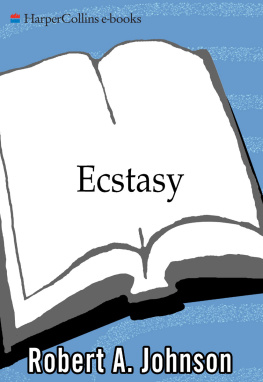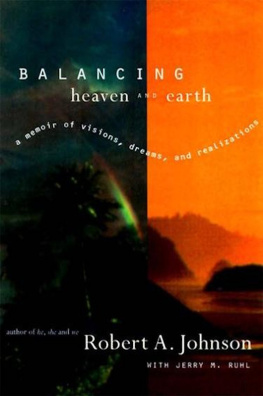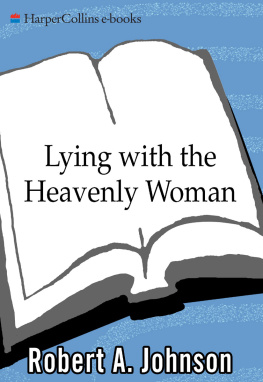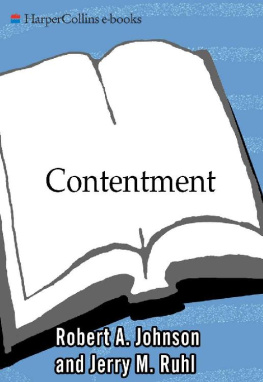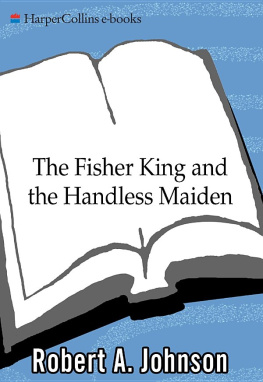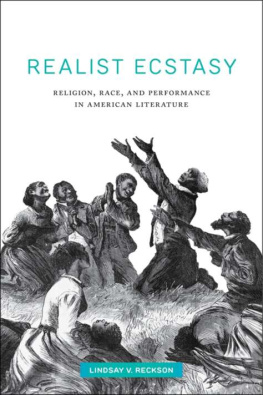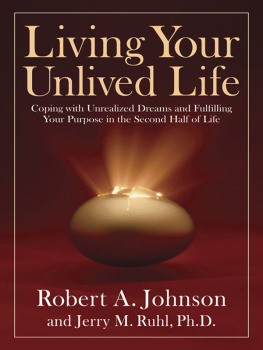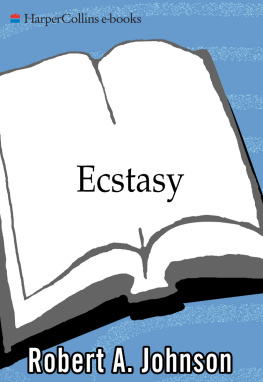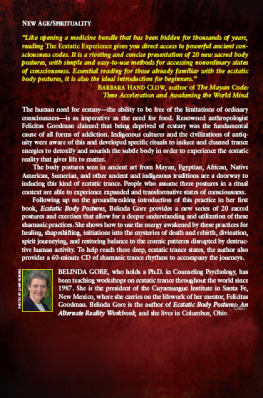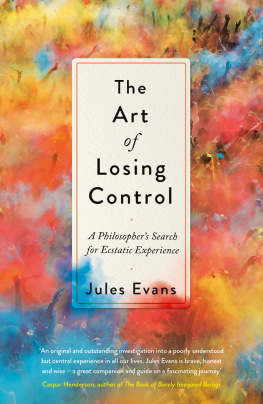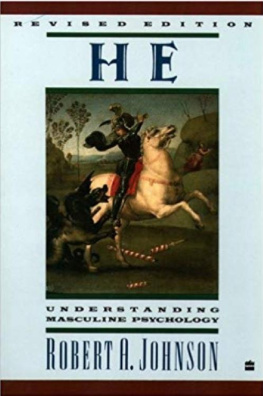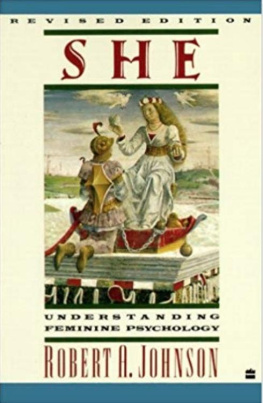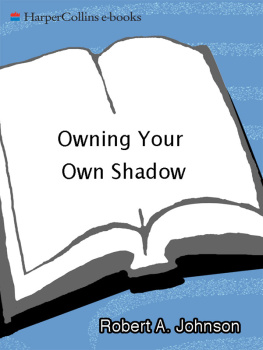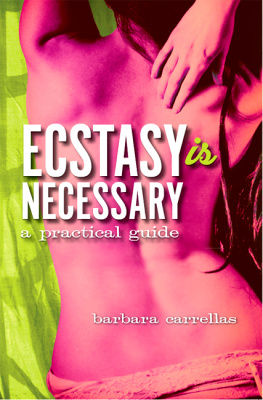Robert A. Johnson
The multiplicity of the gods correspondeth to the multiplicity of man.
C. G. JUNG
Ecstasy. It was once considered a favor of the gods, a divine gift that could lift mortals out of ordinary reality and into a higher world. The transformative fire of ecstasy would burn away the barriers between ourselves and our souls, bestowing on us a greater understanding of our relation to ourselves and to the universe.
It is the great tragedy of contemporary Western society that we have virtually lost the ability to experience the transformative power of ecstasy and joy. This loss affects every aspect of our lives. We seek ecstasy everywhere, and for a moment we may think we have found it. But, on a very deep level, we remain unfulfilled.
Our materialistic society teaches us that the only reality is the one we can hold onto, the only thing of value what we can take to the bank. Our spirits need nourishment as much as ever. But, having excluded the inner experience of divine ecstasy from our lives, we can look only for its physical equivalent. And no matter how hard we look, or how many low-grade ecstatic experiences we accumulate, we crave more.
This craving has led to the most characteristic symptom of our time: addictive behavior. So many of our lives are touched by addictionif not our own, then that of a relative, a friend, a celebrity. Do you recognize any of these? The successful young entrepreneurs who think they need cocaine to give them the competitive edge; the supermoms who cant get through the day without a tranquilizer; the harried managers who need two or three drinks every night after work to unwind; the young children who try street drugs because they are already touched by our societys bankruptcy of feeling; the college students who go to parties solely to get drunk or stoned; the dangerously fast drivers who are addicted to the thrill of speed; the insider traders who make illegal deals on the stock market because they are addicted to the kick of making money; the perpetual singles who go from lover to lover, addicted to the first glow of romantic love.
Addiction is the negative side of spiritual seeking. We are looking for an exultation of the spirit; but instead of fulfillment we get a short-lived physical thrill that can never satisfy the chronic, gnawing emptiness with which we are beset.
To fill this emptiness, we need to reconnect with the capacity for ecstasy that lies dormant within us. Our first step must be to try to understand the nature of ecstasy.
One can often use myth to elucidate psychological processes, as I have done elsewhere. For example, my book entitled He explored masculine psychology through the legend of Parsifal and the Grail; We explored romantic love through the story of Tristan and Iseult. This book explores the nature of ecstasy through the myth of Dionysus.
In ancient Greece Dionysus was the god of wine and ecstasy. The myth of Dionysus, and the rise and fall of his cult, offer perhaps the best elucidation of our loss of the ecstatic experience.
Part I of this book explores the meaning of the Dionysian archetype of ecstasy and what its loss has meant for us. Part II suggests avenues we can explore to reclaim and express the true joy that is ours by birthright.
Archetypes: Blueprints of Human Behavior
The world of the ancient Greeks was formed and determined by their gods. In the larger-than-life actions of the gods and goddesses they saw the dramas of daily life. Today the gods of Olympus seem to have little relevance. Our world is on a more human scale, molded by psychological forces. For us, Olympus is simply a mountain.
But the fact that we no longer have the Olympic realm in which to seek the gods does not mean that the gods have ceased to exist. The forces they represent express themselves in the way that is most understandable to us: psychologically, as modes of behavior.
It is as psychologist Carl Jung once said: We do not believe in the reality of Olympus, so the ancient Greek gods live on for us today as symptoms. We no longer have the thunderbolts of Zeus, we have headaches. We no longer have the arrows of Eros, we have angina pains. We no longer have the divine ecstasy of Dionysus, we have addictive behavior. Even though we no longer recognize the gods, we experience their powerful forces.
Jung called the forces behind these symptoms archetypes literally, first patternsblueprints of the basic human drives and qualities that we all share. We tend to think of ourselves as unique individuals, and to a great extent we are. But we also contain within our deepest selves a plurality of these drives and behaviors, which we express in our own ways.
We see the expression of archetypes every day. For example, we may say that a particular woman is a real earth mother because she is nurturing, caring, and down to earth. Or we may say that an overly macho, aggressive man thinks hes Rambo. These archetypes work well for us as descriptions of behavior. We understand immediately what they mean.
Jung considered the Greek gods to be perfect archetypes because their images were distinct and predictable. They never went against type. For example, Zeus, the chief god of Olympus, was forever falling in love. His wife, Hera, the goddess of marriage, was always jealous, always vengeful, always spiteful. It would be completely out of character for her to forgive Zeus or one of his lovers. Instead Hera always plans, plots, and executes heartless revenge. She is the archetype of the jealous wife.
The basic forms and patterns of human behavior do not change, they merely put on the clothes and mores of a particular time and place. For example, in the West we often express the psychological archetypes through our movie idolsMarilyn Monroe as the goddess of love, Venus or Aphrodite; John Wayne as the god of war, Aries or Mars. We can try to repress these archetypes, to drive them underground; but sooner or later they will reemerge. They may come back in an unfamiliar form, but they will be driven by the same archetypal energy.
Myth and the Collective Unconscious
Many modern people equate myth and untruth. As one man I know put it, Myths and legends are the same thing, arent they? Except that legends have a grain of truththere really was a Johnny Appleseedand myths are completely untrue. A great many people in our society agree with this thinking. For them, myths are stories that belong to dead cultures, primitive peoples, or children, and have no bearing on modern adult lives. They are sadly mistaken.
In fact, as we shall see, myths have everything to do with our lives because myths are populated by archetypes. When we read myth as Jung did, we can see clearly how our basic human drives interact. Myth then becomes a rich source of insight into our psychological motivations.

